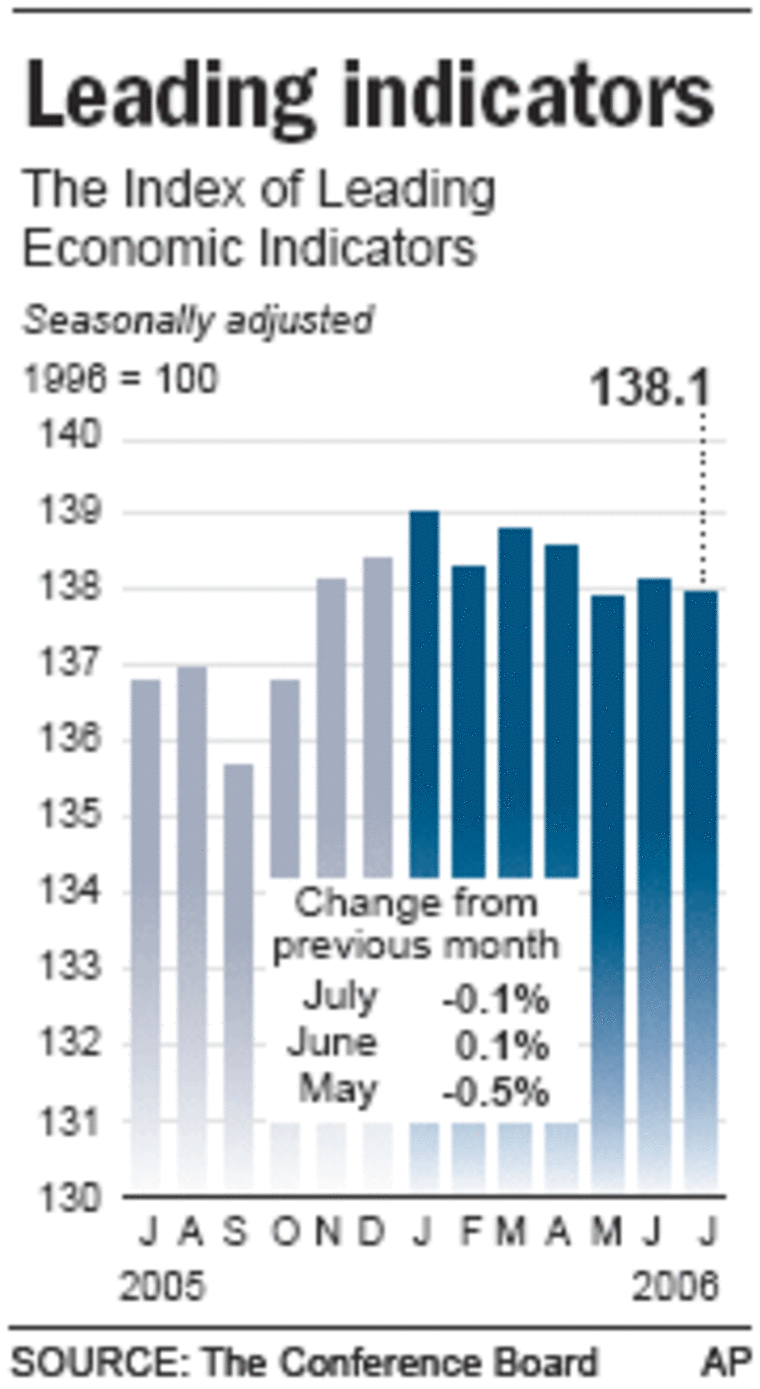An indicator of future economic activity dipped in July, a private research group reported Thursday, in the latest sign that economic growth is cooling off.
The Conference Board, an industry-backed research group based in New York, said its index of Leading Economic Indicators fell 0.1 percent in July from June, following an increase of 0.1 percent in June and a 0.5 percent decline in May. Analysts had expected an increase of 0.1 percent.
The index, which is aimed at forecasting economic activity for the following three to six months, stood at 138.1, below its high so far this year of 139.1 in January.
Ken Goldstein, labor economist at The Conference Board, said a slowdown in the housing sector is becoming more pronounced, causing a drag on the economy. He also pointed to higher interest rates, lower consumer confidence and higher energy prices as other factors keeping growth in check.
However, he said it did not appear that the economy was headed for a hard landing. "The economy is cooling but isn't likely to stall out," Goldstein said.
Goldstein said the essentially flat readings in the leading economic indicator index for June and July suggested continued moderate economic growth through the fall and possibly into the winter.
The index of Leading Economic Indicators is comprised of several metrics that economists believe provide clues about future economic activity, such as the number of housing permits being granted, money supply, new orders for manufacturers, and initial claims for unemployment insurance.

Five of the ten components of the leading index rose in July, led by weekly manufacturing hours, stock prices and consumer expectations. The biggest drag on the index was a marked decline in housing permits.
The cooldown in the housing sector has been a major focus for economists, since it affects a number of other key areas of the economy including construction, mortgage lenders, lumber and other makers of materials and supplies used in building homes.
In the latest bad sign for that industry, the Commerce Department reported Wednesday that the number of building permits issued in July _ one of the components of the Leading Economic Indicator index _ dropped 6.5 percent, and new home construction fell 2.5 percent, the fifth decline in the past six months.
"So far the slowdown in housing is not steep enough to suggest that a hard landing is coming," said Anthony Chan, chief economist for JPMorgan Private Client Services in New York. But he said data is suggesting the sector is getting "deeper and deeper into slower growth territory."
"Although the housing market has not yet reached the point at which it automatically implies a hard landing, the fact that it continues to deteriorate is causing anxiety among economy watchers," Chan said. "People are on the edge to find out whether this slowdown in economic activity will lead to a hard landing or a soft landing — that's the question."
Separately, the Labor Department reported that the number of laid off workers filing claims for unemployment insurance fell last week by the largest amount in a month. The drop, which was larger than analysts had been expecting, was not likely to change economists’ view that the labor market is softening.